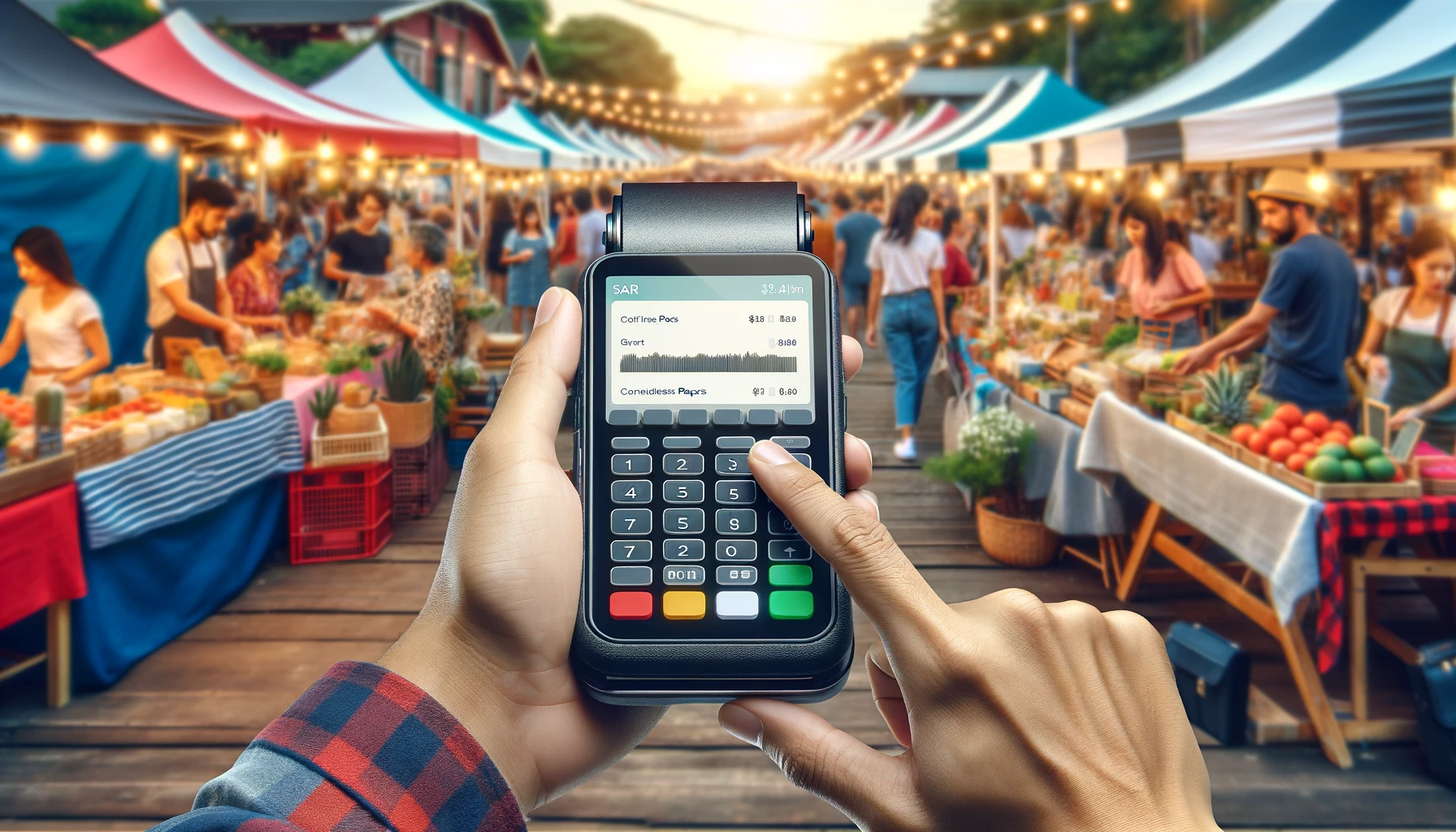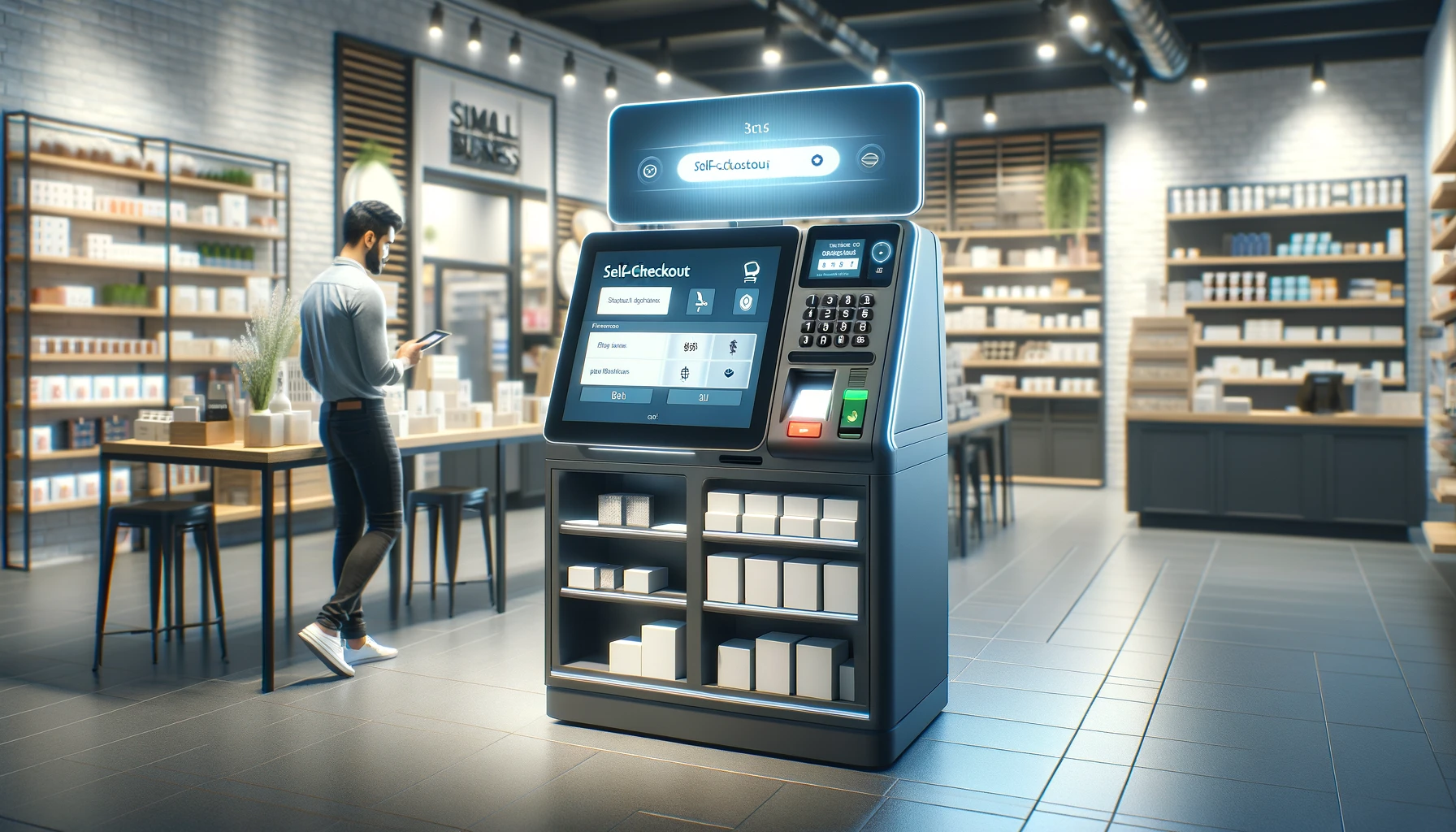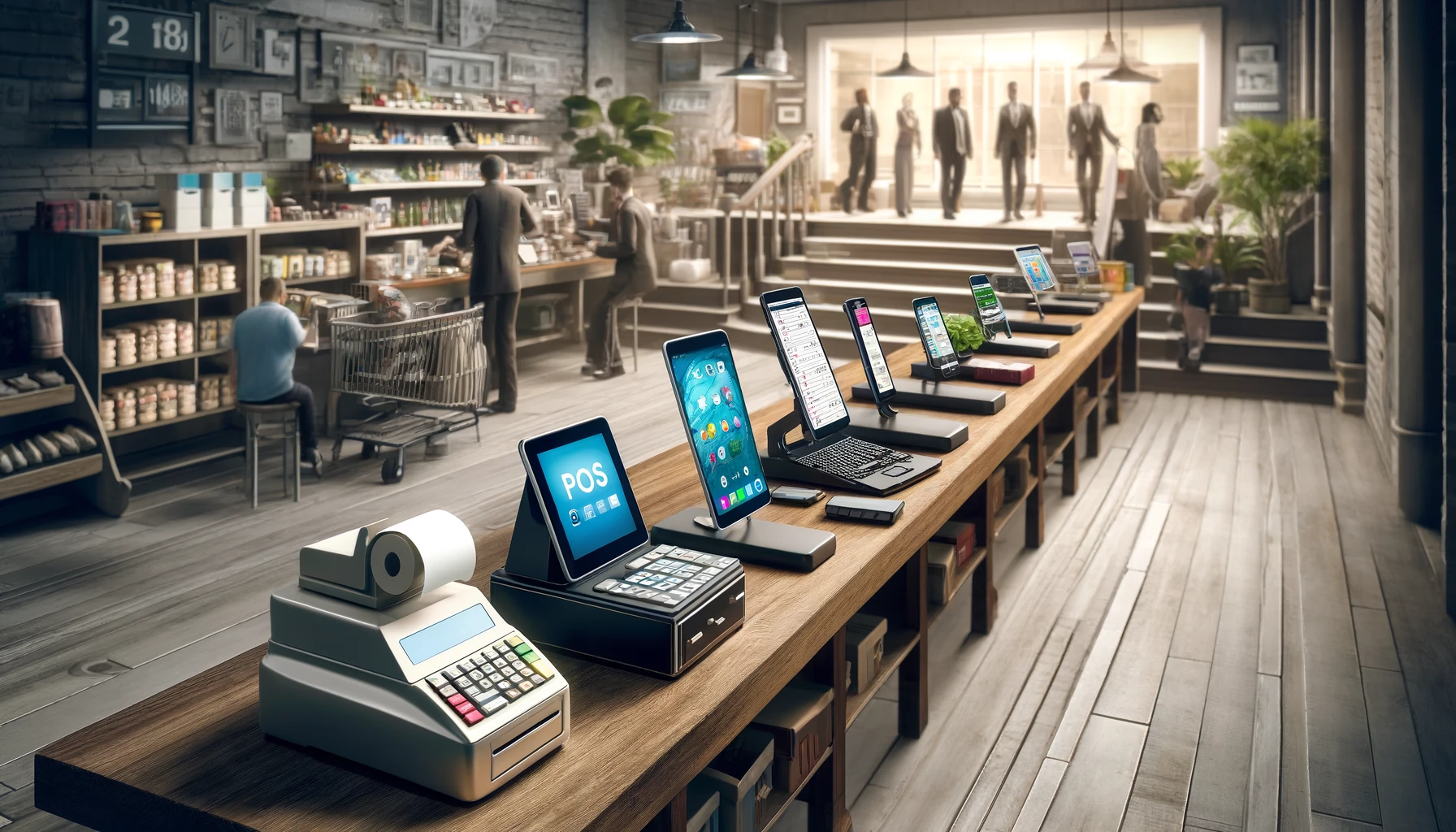Click here to visit our YouTube channel and be sure to like, subscribe, and comment to let us know what you think!
In the rapidly evolving retail landscape, a robust point-of-sale (POS) system has become the backbone of any successful small business operation. As we approach 2024, the POS market is saturated with a myriad of options, each claiming to be the panacea for streamlining sales, inventory management, and customer engagement. Navigating this labyrinth can be a daunting task, especially for small business owners who must prioritize efficiency, scalability, and cost-effectiveness.
 The Evolving Role of POS Systems
The Evolving Role of POS Systems
Once a mere cash register, today’s POS systems have metamorphosed into multifaceted business command centers. They are no longer confined to the transactional realm but have become integral to driving actionable insights, identifying sales trends, understanding customer behavior, and gauging employee performance. The integration of POS systems with customer relationship management (CRM) tools has unlocked a new era of personalized engagement, enabling businesses to foster relevance and cultivate long-lasting customer relationships.
Embracing Flexibility Through Headless Architectures
In the fast-paced retail world, agility is paramount, and small businesses must be prepared to pivot swiftly to accommodate changing market dynamics. This is where the advent of headless architectures and microservices has revolutionized the POS landscape. These cutting-edge technologies empower small businesses to create a unified user interface across multiple touchpoints, be it a traditional fixed POS, a mobile app, a kiosk, or an e-commerce platform.
By operating on a single code base, businesses can seamlessly integrate new functionalities, such as curbside pickup or line-busting mobile applications, without the need for extensive employee training. This level of flexibility not only enhances the customer experience but also future-proofs small businesses, enabling them to adapt swiftly to emerging payment methods, be it cryptocurrencies, buy-now-pay-later (BNPL) options, or digital wallets from tech giants like Apple, Google, and Samsung.
Data Cleanliness: The Cornerstone of AI Integration
As artificial intelligence (AI) continues to permeate the retail sector, the role of POS systems has taken on newfound significance. With an estimated 80% of transactions flowing through POS systems, these platforms have become the gatekeepers of data quality, a critical prerequisite for harnessing the power of AI effectively.
Small businesses that leverage a comprehensive POS solution encompassing CRM, labor management, e-commerce, payments, and mobile capabilities can benefit from a single source of truth, ensuring data cleanliness and enabling AI-driven decision-making. However, this technological advancement also heightens security concerns, as POS systems often house sensitive transactional data, credit card information, and personal identifiable information (PII) about customers, making them prime targets for cybercriminals.
The Enduring Relevance of Self-Checkout
Despite occasional media reports of consumer dissatisfaction with self-checkout systems, industry experts remain bullish on this technology’s potential. Self-checkout solutions offer a cost-effective means of addressing labor challenges, a critical consideration for small businesses operating on lean budgets.
While early iterations of self-checkout systems may have been plagued by clunky user interfaces and security concerns, the industry is rapidly evolving to address these limitations. The future is likely to embrace a hybrid model, where self-service POS coexists harmoniously with traditional systems, providing customers with a seamless and personalized experience while optimizing operational efficiency.
Selecting the Right POS for Your Small Business
With a myriad of POS solutions vying for small business attention, the selection process can be overwhelming. However, by focusing on a few key considerations, small business owners can navigate this landscape with confidence.
Ease of Use and Training
A complex or cumbersome POS system can become a bottleneck, slowing down transactions and impeding operational efficiency. Small businesses should prioritize solutions that are intuitive and user-friendly, minimizing the need for extensive employee training and enabling seamless adoption across multiple locations.
Cost and Scalability

Industry-Specific Features
While some POS solutions cater to a broad range of industries, others are tailored to specific verticals, such as retail, hospitality, or service-based businesses. Small businesses should prioritize solutions that offer industry-specific features and functionalities, ensuring a seamless integration with their unique operational workflows.
Integration and Customization
In today’s interconnected business landscape, the ability to integrate with third-party applications and customize the POS system to meet unique requirements is paramount. Small businesses should seek solutions that offer robust integration capabilities, enabling them to leverage best-in-class tools for accounting, marketing, inventory management, and customer relationship management.
Customer Support and Training
Even the most sophisticated POS system can falter without proper support and training. Small businesses should evaluate the level of customer support provided by potential vendors, ensuring access to knowledgeable resources through various channels, including phone, email, live chat, and social media.
Embracing the Future of Retail with the Right POS Solution
As we look towards 2024 and beyond, the retail landscape is poised for further disruption, driven by technological advancements, evolving consumer preferences, and heightened competition. In this dynamic environment, the right POS solution can be the difference between stagnation and sustained growth for small businesses.
By embracing solutions that prioritize flexibility, data integrity, and customer engagement, small businesses can position themselves as agile and forward-thinking entities, capable of adapting to market shifts and capitalizing on emerging opportunities. Ultimately, the choice of a POS system is not merely a technological decision but a strategic investment in the long-term success and competitiveness of a small business.
| System | Starting Software Costs | Hardware Costs | Key Features |
|---|---|---|---|
| Starts at $9.95/month | Pricing varies based on equipment | Customized hardware and software packages with tailored accessories | |
Our pick! |
Starts at $59/month | Additional terminals are $34/month | Great back-end reporting and forecasting, a la carte pricing options available |
| Starts at $49/month | Flat rate processing with zero fees or surcharges | 24/7 in-house phone support | |
| $69/month | $799 Add Guest-Facing Display +$200 | Order management system that alerts staff when food is ready | |
| Free for basic software | Starts at $50 for readers | Highly intuitive, easy-to-use interface |
Unlocking Omnichannel Excellence
In the age of omnichannel retail, where customers seamlessly navigate between physical and digital touchpoints, small businesses must strive to deliver consistent and cohesive experiences across all channels. A robust POS system can serve as the backbone of this omnichannel strategy, enabling real-time inventory synchronization, centralized customer data management, and seamless order fulfillment across multiple channels.
By integrating their POS with e-commerce platforms, mobile apps, and in-store kiosks, small businesses can create a unified brand experience, fostering customer loyalty and driving repeat business. Additionally, the ability to leverage customer data and purchase histories can unlock personalized marketing campaigns, targeted promotions, and tailored recommendations, further enhancing customer engagement and driving revenue growth.
Leveraging Advanced Analytics and Reporting
Successful small businesses thrive on data-driven decision-making, and a modern POS system can serve as a treasure trove of valuable insights. From real-time sales data and inventory levels to customer behavior patterns and employee performance metrics, advanced analytics and reporting capabilities empower small business owners to make informed decisions, optimize operations, and identify growth opportunities.
By leveraging these powerful analytical tools, small businesses can gain a comprehensive understanding of their business performance, identifying areas for improvement, streamlining processes, and maximizing profitability. Furthermore, the ability to generate customized reports tailored to specific stakeholders, such as investors, partners, or regulatory bodies, can enhance transparency and foster trust within the business ecosystem.
Embracing Mobility and Enhancing Customer Experiences
In the fast-paced world of retail, customers demand convenience and seamless experiences. A modern POS system can empower small businesses to meet these expectations by offering mobile capabilities that extend beyond the traditional point-of-sale terminal.
Mobile POS solutions allow businesses to process transactions anywhere, whether on the sales floor, at pop-up events, or during offsite demonstrations. This mobility not only enhances customer convenience but also opens up new revenue streams and marketing opportunities for small businesses.
Moreover, mobile POS solutions can be integrated with customer-facing applications, enabling features such as mobile ordering, contactless payments, and real-time order tracking. By leveraging these capabilities, small businesses can create a frictionless customer experience, fostering brand loyalty and driving repeat business.
Ensuring Robust Security and Compliance
As the digital landscape becomes increasingly complex, the importance of robust security and compliance measures cannot be overstated. Small businesses must prioritize POS solutions that adhere to industry-specific regulations and implement stringent data protection protocols.
From Payment Card Industry Data Security Standard (PCI DSS) compliance to the secure handling of sensitive customer data, a modern POS system should offer multi-layered security features, such as encryption, tokenization, and fraud detection mechanisms. Additionally, regular software updates and patches should be seamlessly integrated to address emerging security threats and vulnerabilities.
By prioritizing security and compliance, small businesses can not only protect their customers’ sensitive information but also safeguard their reputation and brand integrity, fostering trust and confidence within their customer base.
Empowering Employee Productivity and Engagement
A modern POS system can play a crucial role in enhancing employee productivity and engagement, ultimately contributing to the overall success of a small business. By streamlining workflows and automating repetitive tasks, employees can focus on delivering exceptional customer service and driving sales.
Advanced employee management features, such as role-based access controls, performance tracking, and scheduling tools, can help small businesses optimize their workforce and foster a culture of accountability and collaboration. Additionally, seamless integration with payroll and human resources systems can further streamline administrative processes, reducing operational overhead and minimizing errors.
By empowering employees with the right tools and fostering a positive work environment, small businesses can cultivate a motivated and engaged workforce, which can directly translate into improved customer experiences and increased revenue.
Embracing Sustainability and Eco-Friendly Practices

From digital receipts and e-invoicing to inventory management tools that minimize overstock and waste, a robust POS solution can help small businesses minimize their environmental footprint while streamlining operations. Additionally, by integrating with eco-friendly delivery and logistics partners, small businesses can further enhance their sustainability efforts, fostering a positive brand image and attracting like-minded customers.
By embracing sustainable practices and leveraging the capabilities of a modern POS system, small businesses can not only contribute to a greener future but also position themselves as socially responsible entities, resonating with the values of their customers and stakeholders.
Embracing Innovation and Future-Proofing Your Business
In the ever-evolving retail landscape, small businesses must remain agile and adaptable to stay ahead of the curve. A modern POS system can serve as a catalyst for innovation, enabling small businesses to embrace emerging technologies and future-proof their operations.
From integrating with cutting-edge payment solutions like cryptocurrencies and biometric authentication to leveraging artificial intelligence and machine learning for predictive analytics and personalized recommendations, a flexible and scalable POS system can empower small businesses to seamlessly incorporate new technologies as they emerge.
By future-proofing their operations and embracing innovation, small businesses can position themselves as industry leaders, fostering a competitive edge and ensuring long-term sustainability in an ever-changing market.
In conclusion, selecting the right POS system for a small business in 2024 is not merely a technological decision but a strategic investment in the long-term success and growth of the enterprise. By prioritizing flexibility, data integrity, customer engagement, and future-proofing capabilities, small businesses can unlock a world of opportunities, streamline operations, and deliver exceptional customer experiences. With the right POS solution in place, small businesses can confidently navigate the dynamic retail landscape, adapting to emerging trends and capitalizing on new revenue streams, ensuring their continued relevance and competitiveness in the years to come.

 The Evolving Role of POS Systems
The Evolving Role of POS Systems


